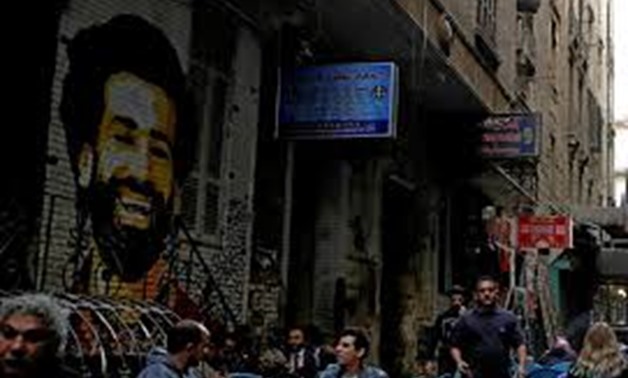CAIRO – 17 January 2018: The percentage of Egyptians’ satisfaction with governors’ performance ranged between 40-74%, according to a newly released survey conducted by the Egyptian Center for Public Opinion Research (Baseera).
The governor of Damietta achieved the highest level of approval from the citizens of his governorate, since citizens said they are satisfied with his performance by 74%. The data shows the level of approval ranged from 40% to 49% in six governorates: Giza and Qalyubia with approximately 40% in each, Cairo and Suez with approximately 42% in each, Alexandria with 47% and Dakahlia with 48%.
The approval with the governor’s performance ranged between 50% and 59% in eight governorates: Sharqia (50%); Port Said, Luxor and Minya with approximately 51% in each; Qena (54%); Gharbia (56%); and Ismailia and Menoufia with approximately 58% in each.
The level of approval was 60% or higher in eight governorates: Beheira, Assiut and Beni Suef with 61% each; Aswan (62%); Sohag (63%); Kafr El-Sheikh (65%); Fayoum (70%); and Damietta (74%).
 Baseera survey released on Wednesday, January 17, 2018 to measure governors’ approval rate
Baseera survey released on Wednesday, January 17, 2018 to measure governors’ approval rate
The survey, released on Wednesday, was conducted by phone during the months of September, October, November and December 2017, with a total representative sample of 5,929 citizens aged 18 years and over, to measure governors’ approval rates. The surveys were conducted on random samples of the population in each governorate, except for the frontier governorates.
Egypt’s governors were always appointed by the president of the republic, but a new draft law discussed by the House of the Representatives proposes electing governors by the people, to allow more decentralization across the nation.
The anticipated draft law will solve many problems of Egypt’s 27 governorates across its seven regions, like amending the broken garbage system, organizing the local councils and specifying their tasks, setting the role of the governors’ elections, granting the governor new missions and more authorities to enable taking the necessary decisions, and establishing new methods to observe the local councils and the governors’ work and to eliminate corruption.
On January 14, President Abdel Fatah al-Sisi appointed the head of the Central Agency for Public Mobilization and Statistics (CAPMAS), Abu Bakr al-Gendy, as the Minister of Local Development. Gendy is expected to face several challenges in his term at the office, giving the new law that will be passed by the parliament.
The new minister is commissioned to set a mechanism to combat corruption across Egypt, as monitoring and inspection should be activated within the ministry to undertake tours in governorates in order to detect irregularities.
Meanwhile, due to the increasing number of illegal buildings, the ministry in the coming period will work on demolishing buildings that have been illegally built.
The other files waiting for Gendy are restoring state-owned territories and establishing hygiene holding companies to carry out hygiene and recycling projects, as this had been declared by former Minister Hisham el-Sherif before leaving the office.
At the same time, the ministry will work on developing Bir al-Abed in North Sinai, as Sherif signed during his tenure a cooperative protocol with Misr El-Kheir Foundation and the Ministry of Supply to develop it.
Furthermore, developing Upper Egypt will be one of the priorities of the ministry, where they will continue implementing the halted projects in Upper Egypt starting February, according to what Sherif had announced.
It is worth mentioning that before Sherif left the ministry, the Ministry of Local Development was following legislative reformation with other ministries.
In his early statements, the minister addressed the problems of Upper Egypt, saying that poverty rates in Upper Egypt exceed 50 percent, underlining the importance of pushing forward development and urbanization efforts in such areas to improve living conditions for their people.
He cited statistics revealing that 80 percent of Egyptian migration operations abroad come from Upper Egypt because of the lack of job opportunities there. “Upper Egypt really needs to be developed,” he asserted, saying that statistics show that 70 percent of development projects in Egypt are concentrated in Cairo and Giza, and that's the reason of the availability of job opportunities in both governorates, whereas they are lacking in other parts of the country.
One of the most essential files Gendy has to work on is the corruption in the local councils, which obstructs the development projects.
A few days ago, the Administrative Control Authority (ACA) – the regulatory body responsible for enforcing laws and regulations within state bodies – detained the governor of Menoufia, Hesham Abdel Baset, and two businessmen in Sadat City over charges of corruption.
Security sources said the governor was under ACA surveillance in the last period, and the authority managed to record phone calls by Abdel Baset proving that he agreed to take LE 2 million ($113,000) as a bribe in return for land licenses.
The ACA referred the governor to the public prosecution for investigation.
Bribery and corruption have been rife in Egypt for many decades and were among the main causes of the 2011 uprising that toppled former President Hosni Mubarak.
President Sisi always asserted on applying strict measures within the government institutions to crack down on any violations. He hailed the role played by the ACA on different occasions.
Egypt ranked 108th out of 176 countries on Transparency International’s 2016 Corruption Perception Index, scoring 34 points, down two points compared to 2015. A score of zero is highly corrupt, while 100 is very clean.
Transparency International, the leading civil society organization fighting corruption worldwide, will release its next annual Corruption Perceptions Index on January 25, 2018.


Comments
Leave a Comment